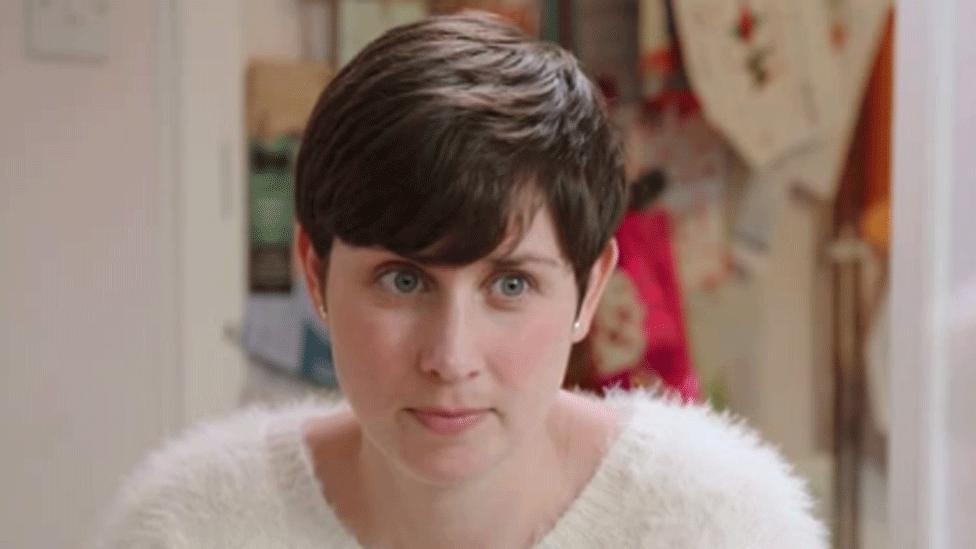Parents with cancer at Christmas: 'It's exhausting'
- Published
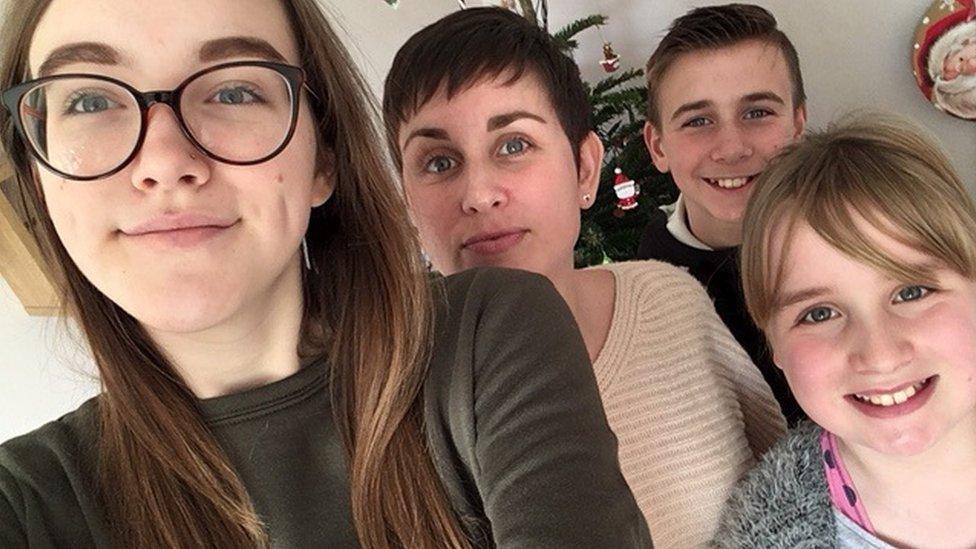
Emma Young (centre) said she holds in her emotions at Christmas for her children
For Emma Young, Christmas is a time tinged with sadness - not that she will show it to her three children.
The 39-year-old was diagnosed in 2014 with incurable cancer in her breast and bones.
She says she makes sure Christmas is "everything it should be" for her children, who are 10, 13 and 18.
But she struggles with the thought that each Christmas could be her last.
"Every Christmas with the diagnosis is hard, very emotional," she says.
"I live every Christmas now as though it's my last, because you just don't know.
"In the back of your head you know you might not be here for other Christmases the kids may celebrate. It's really tough going.
"I kind of hold it in for the kids' sake, but it's exhausting."
'Cutting back'
Emma is among more than 350,000 parents in the UK with cancer who struggle to enjoy Christmas, according to Macmillan Cancer Support.
The charity says tens of thousands of mums and dads are unable to afford or eat a Christmas dinner with their family because of their illness.
Others are physically unable to decorate their homes or cannot afford presents for their children - leaving nearly 30,000 feeling like bad parents.
For Emma, her illness meant she could no longer work as a teaching assistant and instead had to rely on benefits.
She said this meant Christmas is not only challenging emotionally, but also financially.
Emma says she now saves all year for Christmas, buying presents throughout the year in various sales when the items are cheaper.
"Obviously you don't spend anywhere near this amount of money any other time of the year.
"It's a matter of saving up. It doesn't really stop, I just continually save all year.
"By September time I've got enough money to make a start.
"Then it's a matter of saving where you can. In the last few weeks I've been cutting back on our food shopping, saving £10 or £20 here and there that I can put towards Christmas...
"I'll look in the sales, things that are reduced, stuff in January sales. You have no choice.
"There's no way in the world my kids wouldn't have a decent Christmas."
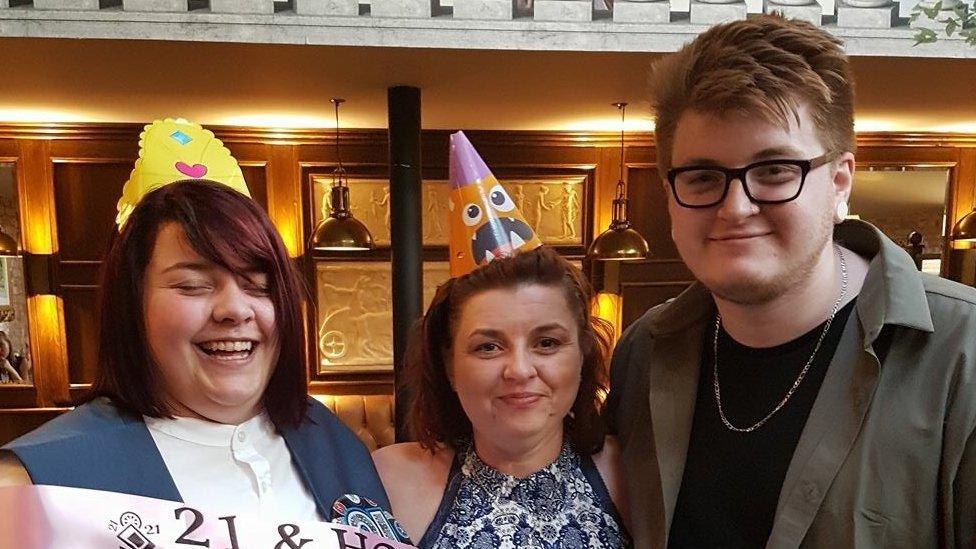
Clare Davis-Eaton (centre) said Christmas had to be "scaled down" because of her cancer
Christmases for Clare Davis-Eaton, 43, and her two children used to involve "eating, drinking and being merry".
But last Christmas was Clare's first since her diagnosis of cancer in the tongue and throat in March 2016.
"I would have been the first to a party, the last home. Now I can't do it," she said.
Like Emma, Clare's diagnosis meant she had to stop her job as a community support officer for the NHS and live on benefits.
This meant scaling back Christmas for her and her two children, aged 21 and 23.
"I had to have a savings jar, which I put all my change in each week.
"Everything was really, really scaled down and I'm not used to that.
"I'm used to a couple of months before Christmas thinking 'I'll bang in a load of overtime in to get the extra money in the bank for Christmas' and I didn't have that opportunity... It's very much more budgeted."
Clare's radiotherapy treatment, which damaged her taste buds and saliva glands, has also made it difficult for her to eat - she only had a small amount of last year's Christmas meal but could not taste anything.
Her condition has also made her anxious and afraid to leave her home.
"I just wanted to stay and have my kids next to me. I didn't want to do the big 'let's go to the family'."
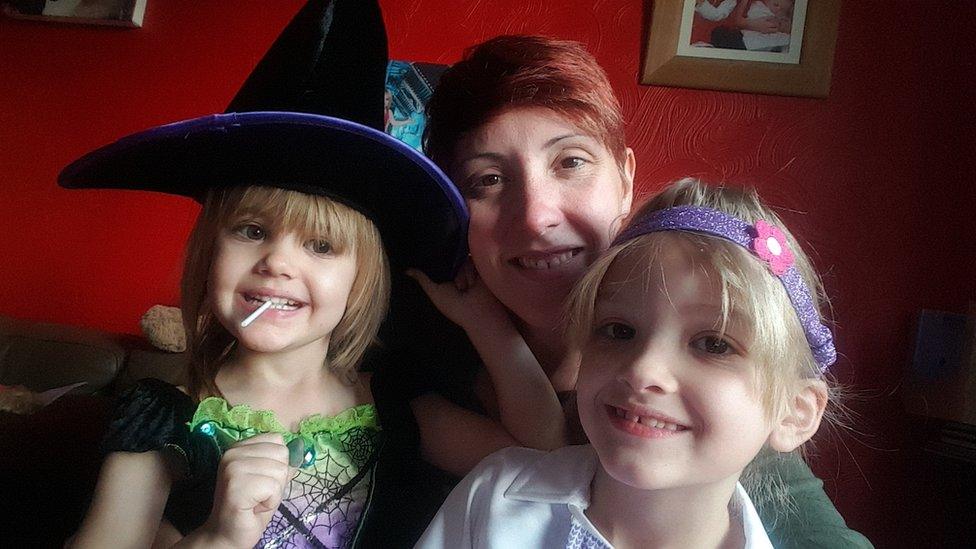
Charlotte-Louise Crowe said not being able to do "Christmassy things" with her children was worse than losing her breast
For Charlotte-Louise Crowe, her condition meant she was unable to take her children, aged four and six, to the Christmas festivities, including meeting Father Christmas.
She was diagnosed with breast cancer in November 2015 and her mastectomy ended up taking place the week before Christmas that year.
"I was really upset that I missed out on the Christmas festivities - it's my favourite time of year," the 30-year-old said.
"Knowing that I wouldn't be able to do anything Christmassy with my kids was more devastating than losing my breast."
'Back to basics'
Emma's condition for now is stable - which means her cancer has not grown - although it cannot be cured.
Clare has been told she currently shows no signs of the disease, but will continue to need check-ups for the next five years - the next being on 27 December.
She said the thought of Christmas - and her looming check-up - made her anxious.
But she said the one positive of the illness was that it had caused her to re-evaluate the festive season.
"It [cancer] makes you feel as though you can't do what you actually want to do.
"But on the other hand it has brought us back to basics about what Christmas should be, and that's spending time with family...
"Both my kids said last year 'we're not bothered by presents, mum, we just want you here'."
Follow Alex on Twitter, external.
- Published20 December 2017
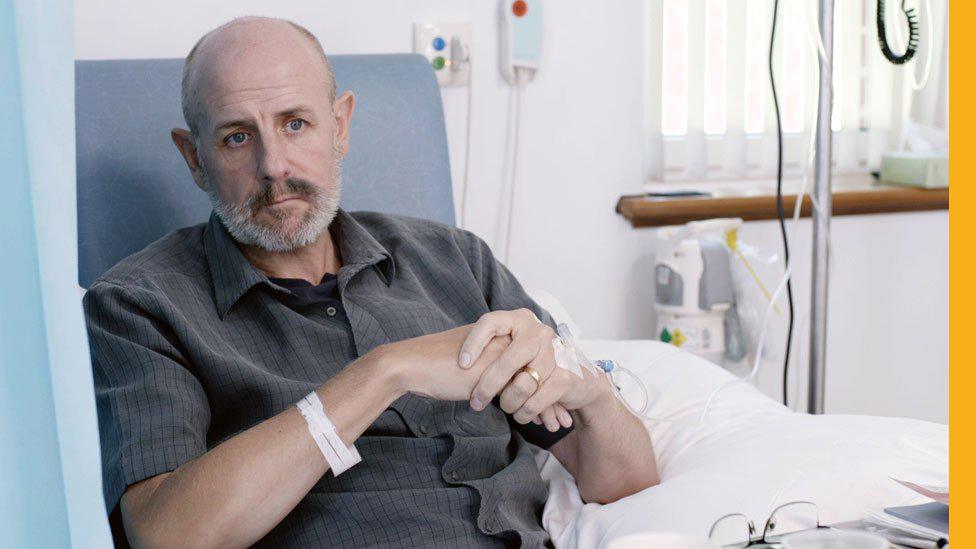
- Published8 November 2017
